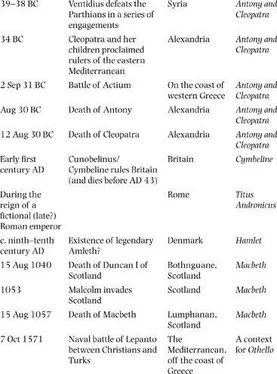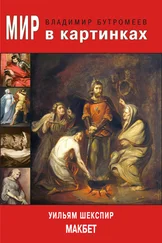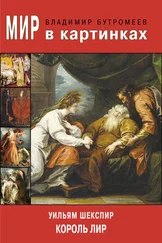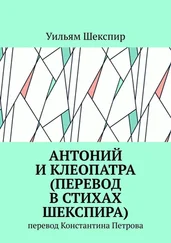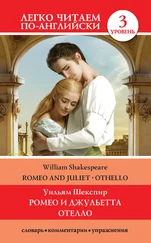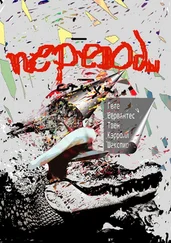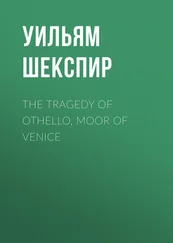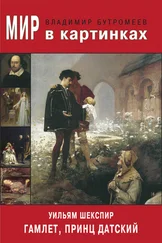Уильям Шекспир - Othello
Здесь есть возможность читать онлайн «Уильям Шекспир - Othello» — ознакомительный отрывок электронной книги совершенно бесплатно, а после прочтения отрывка купить полную версию. В некоторых случаях можно слушать аудио, скачать через торрент в формате fb2 и присутствует краткое содержание. Жанр: Старинная литература, на английском языке. Описание произведения, (предисловие) а так же отзывы посетителей доступны на портале библиотеки ЛибКат.
- Название:Othello
- Автор:
- Жанр:
- Год:неизвестен
- ISBN:нет данных
- Рейтинг книги:4 / 5. Голосов: 1
-
Избранное:Добавить в избранное
- Отзывы:
-
Ваша оценка:
- 80
- 1
- 2
- 3
- 4
- 5
Othello: краткое содержание, описание и аннотация
Предлагаем к чтению аннотацию, описание, краткое содержание или предисловие (зависит от того, что написал сам автор книги «Othello»). Если вы не нашли необходимую информацию о книге — напишите в комментариях, мы постараемся отыскать её.
Othello — читать онлайн ознакомительный отрывок
Ниже представлен текст книги, разбитый по страницам. Система сохранения места последней прочитанной страницы, позволяет с удобством читать онлайн бесплатно книгу «Othello», без необходимости каждый раз заново искать на чём Вы остановились. Поставьте закладку, и сможете в любой момент перейти на страницу, на которой закончили чтение.
Интервал:
Закладка:
Let me not name it to you, you chaste stars:
It is the cause. Yet I’ll not shed her blood,
Nor scar that whiter skin of hers than snow,
And smooth as monumental alabaster:
Yet she must die, else she’ll betray more men.
Put out the light, and then put out the light.
If I quench thee, thou flaming minister,
I can again thy former light restore,
Should I repent me: but once put out thy light,
Thou cunning’st pattern of excelling nature,
I know not where is that Promethean heat
That can thy light relume….These beautiful words are being used to justify the ugly impending act of suffocation, the extirpation of that very thing—human breath—which makes beautiful speech possible. It is an extreme example of tragedy’s troubling juxtaposition of violence and the aesthetic, made doubly painful by the cultural associations now attached to the image of a powerful and athletic black man killing his white wife out of sexual resentment.Shakespeare’s Venetian world is suffused with sexual as well as racial prejudice. Each of the three women in the play is viewed at some point—in Bianca’s case, at all points—as a sexual commodity. And yet the female characters are never passive. They express themselves with vigor and take action into their own hands. Desdemona only becomes a victim when she lies vulnerably asleep. The play does not necessarily replicate the prejudices of its male characters. In a remarkable passage in the Folio text,* Emilia lucidly articulates an argument that skewers the double standard of her society:… Let husbands know
Their wives have sense like them: they see and smell
And have their palates both for sweet and sour,
As husbands have. What is it that they do
When they change us for others? Is it sport?
I think it is. And doth affection breed it?
I think it doth. Is’t frailty that thus errs?
It is so too. And have not we affections?
Desires for sport? And frailty, as men have?
Then let them use us well: else let them know,
The ills we do, their ills instruct us so.In Gregory Doran’s 2004 production for the Royal Shakespeare Company, Emilia appeared to have lived by what she preached. Desdemona describes Lodovico as a “proper” man. The adjective simultaneously suggests handsome, accomplished, and decent; Emilia responds by emphasizing the “handsome” and then says “I know a lady in Venice would have walked barefoot to Palestine for a touch of his nether lip.” In rehearsal for Doran’s production, the actors explored the possibility that the lady is Emilia herself. Could her words here and some part of Iago’s behavior in the play be explained by the hypothesis that she has had an affair with Lodovico?It is a matter of debate as to how seriously we should take Iago’s claims that both Cassio and Othello have cuckolded him. For Samuel Taylor Coleridge, this was “the motive-hunting of motiveless malignity.” But it was the convention in Shakespeare’s theater that characters addressing the audience in soliloquy speak the truth. Iago is no respecter of convention, yet a sense of his own sexual insecurity may well be one of his driving motives. He says of Cassio, “He hath a daily beauty in his life / That makes me ugly.” This is one of the keys to Iago’s character: Cassio’s good nature tortures him because it exposes his own moral and social deficiencies, just as the very beauty of Othello and Desdemona’s love for each other is something that he cannot bear to witness and that he accordingly feels compelled to destroy.His method of doing so is revealed in the linguistic echo chamber of the gripping temptation scene in the third act. “Alas,” says Othello, “thou echo’st me, / As if there were some monster in thy thought / Too hideous to be shown”: in the course of the dialogue, with its pattern of suggestion and repetition, the monster of envy that resides within Iago is transferred into the jealous fit that brings down Othello. It is an extraordinary performance on Iago’s part, in which—A. C. Bradley’s phrase again—“absolute evil [is] united with supreme intellectual power.” Where Othello’s poetry is one of the great embodiments of Shakespeare’s lyrical art, Iago’s prose and his plotting take us straight to his inventor’s supreme intellectual power.
ABOUT THE TEXTShakespeare endures through history. He illuminates later times as well as his own. He helps us to understand the human condition. But he cannot do this without a good text of the plays. Without editions there would be no Shakespeare. That is why every twenty years or so throughout the last three centuries there has been a major new edition of his complete works. One aspect of editing is the process of keeping the texts up to date—modernizing the spelling, punctuation, and typography (though not, of course, the actual words), providing explanatory notes in the light of changing educational practices (a generation ago, most of Shakespeare’s classical and biblical allusions could be assumed to be generally understood, but now they can’t).But because Shakespeare did not personally oversee the publication of his plays, editors also have to make decisions about the relative authority of the early printed editions. Half of the sum of his plays only appeared posthumously, in the elaborately produced First Folio text of 1623, the original “Complete Works” prepared for the press by Shakespeare’s fellow actors, the people who knew the plays better than anyone else. The other half had appeared in print in his lifetime, in the more compact and cheaper form of “Quarto” editions, some of which reproduced good quality texts, others of which were to a greater or lesser degree garbled and error-strewn. In the case of a few plays there are hundreds of differences between the Quarto and Folio editions, some of them far from trivial. Othello is a classic example of a “two text” Shakespeare play. The Folio includes about 150 lines that are not in the Quarto, and there are about a thousand verbal variants between the two texts. Even tiny variants can be dramatically telling: in Quarto, Desdemona asks Emilia to put “our” wedding sheets on the bed, whereas in Folio she asks for “my” wedding sheets. Though there is not a scholarly consensus on the matter, it seems that the extra 150 lines in Folio are theatrically purposeful additions to the original script. A minority of scholars believe, to the contrary, that the Quarto preserves a cut text.The Folio seems closer to playhouse practice. Its additions include an extra expository speech in the opening scene concerning the Moor’s marriage (1.1.128–47), which serves to clarify matters for the audience, and a new extended simile for Othello at the climax of the temptation scene (“Like to the Pontic Sea… ”), which serves to convert Iago’s oath to the stars and elements into a cruel parody of Othello’s rhetoric. It is possible that the experience of symmetrical staging, with both characters kneeling, required a rewrite creating symmetrical speeches. Most interestingly, the Folio strengthens the female roles. The willow song is not in the original version; it is a Folio addition, which adds immeasurably to the pathos of Desdemona’s tragedy. Three further passages (4.3.87–106, 5.2.176–79, 5.2.217–20) considerably flesh out the character of Emilia. Most powerful is the extraordinary defense of woman in Act 4 Scene 3:But I do think it is their husbands’ faults
If wives do fall…
… And have not we affections?
Desires for sport? And frailty, as men have?The introduction of this plea for recognition of female bodily desire and for an end to the double standard over adultery makes an enormous difference to the play. That Shakespeare seems to have written it not in his first draft but in response to theatrical need is most revealing.If you look at printers’ handbooks from the age of Shakespeare, you quickly discover that one of the first rules was that, whenever possible, compositors were recommended to set their type from existing printed books rather than manuscripts. This was the age before mechanical typesetting, where each individual letter had to be picked out by hand from the compositor’s case and placed on a stick (upside down and back to front) before being laid on the press. It was an age of murky rush-light and of manuscripts written in a secretary hand that had dozens of different, hard-to-decipher forms. Printers’ lives were a lot easier when they were reprinting existing books rather than struggling with handwritten copy. Easily the quickest way to have created the First Folio would have been simply to reprint those eighteen plays that had already appeared in Quarto and only work from manuscript on the other eighteen.But that is not what happened. Whenever Quartos were used, playhouse “promptbooks” were also consulted and stage directions copied in from them. And in the case of several major plays where a reasonably well-printed Quarto was available, the Folio printers were instructed to work from an alternative, playhouse-derived manuscript. This meant that the whole process of producing the first complete Shakespeare took months, even years, longer than it might have done. But for the men overseeing the project, John Hemings and Henry Condell, friends and fellow actors who had been remembered in Shakespeare’s will, the additional labor and cost were worth the effort for the sake of producing an edition that was close to the practice of the theater. They wanted all the plays in print so that people could, as they wrote in their prefatory address to the reader, “read him and again and again,” but they also wanted “the great variety of readers” to work from texts that were close to the theater life for which Shakespeare originally intended them. For this reason, the RSC Shakespeare , in both Complete Works and individual volumes, uses the Folio as base text wherever possible. Significant Quarto variants are, however, noted in the Textual Notes and Quarto-only passages are appended after the text of Othello .The following notes highlight various aspects of the editorial process and indicate conventions used in the text of this edition:
Читать дальшеИнтервал:
Закладка:
Похожие книги на «Othello»
Представляем Вашему вниманию похожие книги на «Othello» списком для выбора. Мы отобрали схожую по названию и смыслу литературу в надежде предоставить читателям больше вариантов отыскать новые, интересные, ещё непрочитанные произведения.
Обсуждение, отзывы о книге «Othello» и просто собственные мнения читателей. Оставьте ваши комментарии, напишите, что Вы думаете о произведении, его смысле или главных героях. Укажите что конкретно понравилось, а что нет, и почему Вы так считаете.
